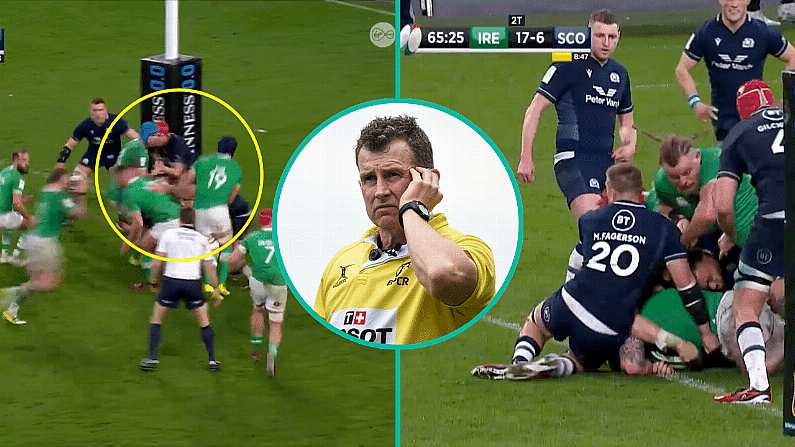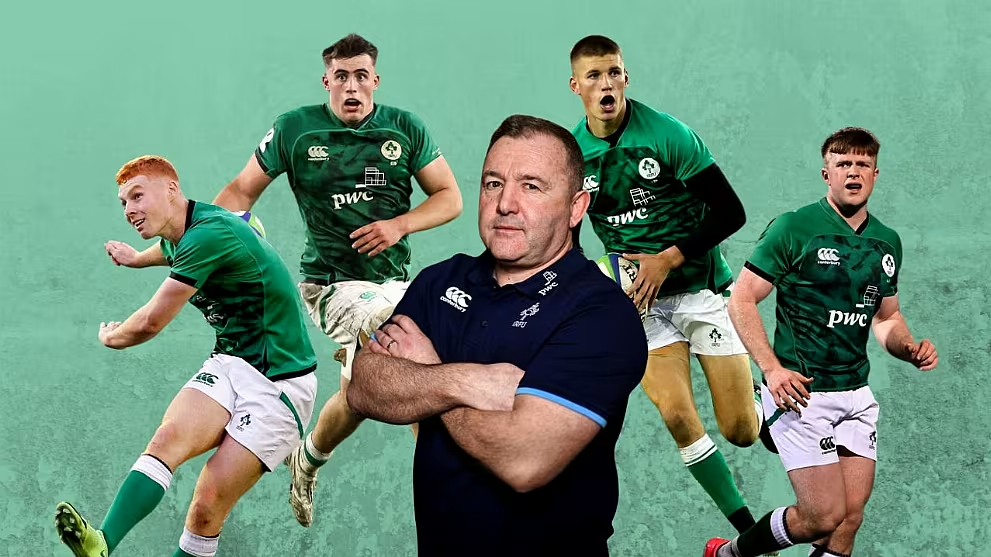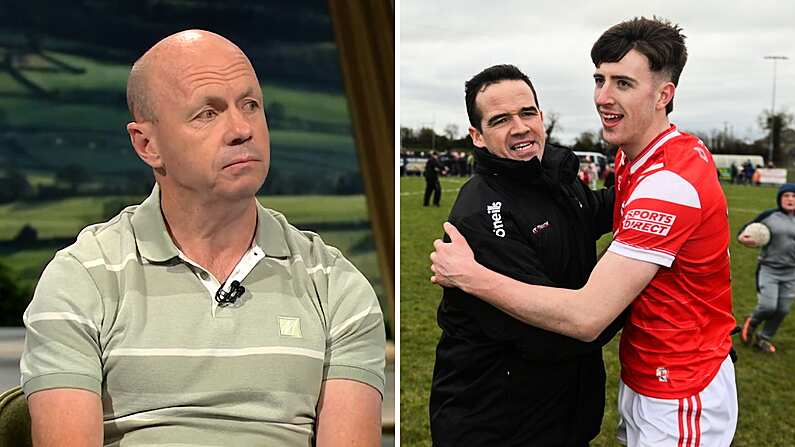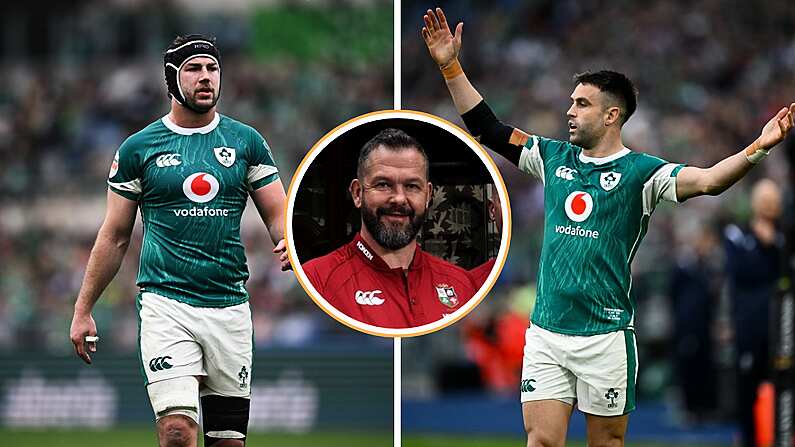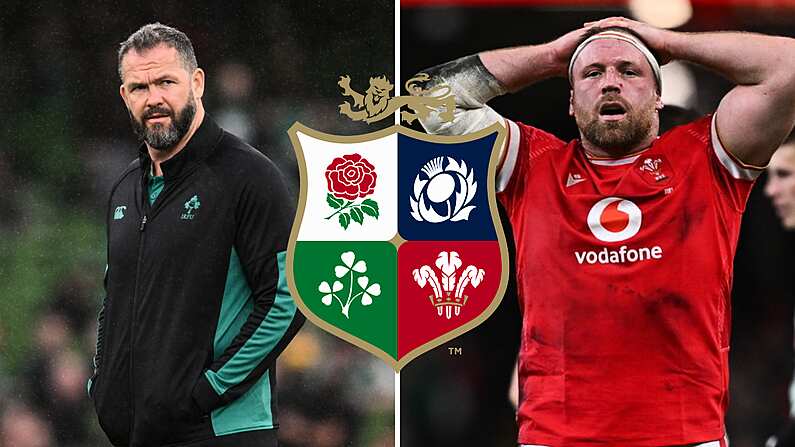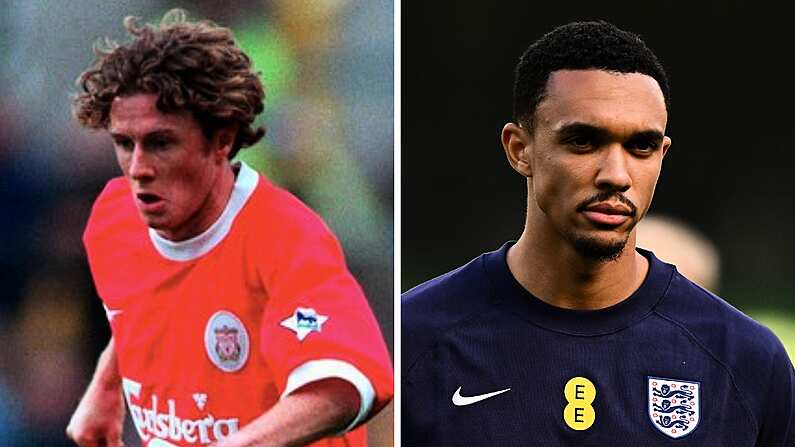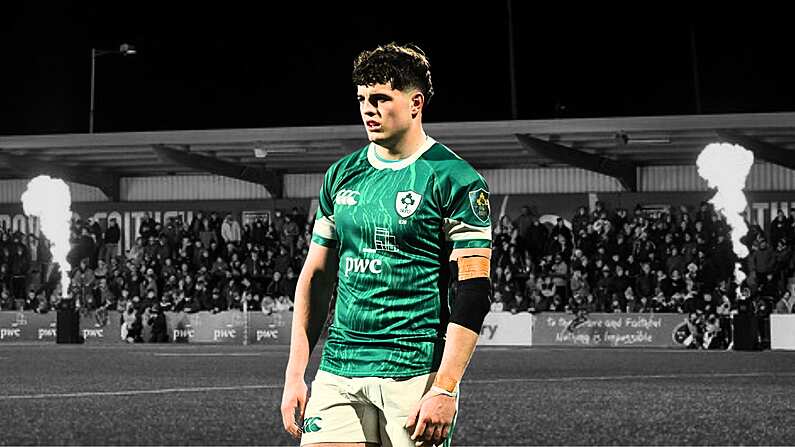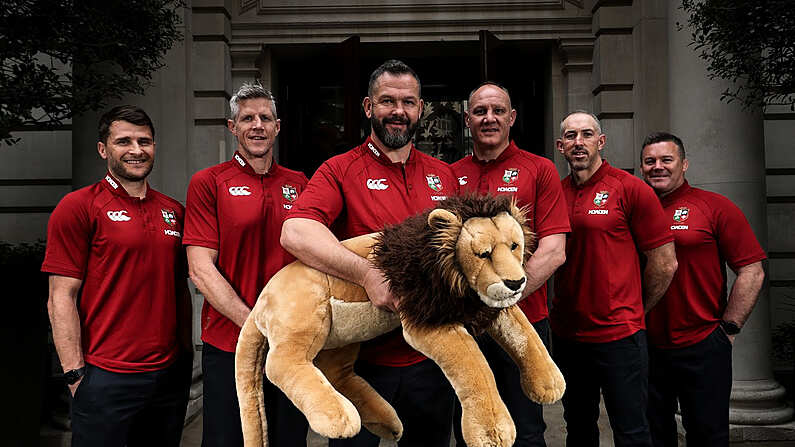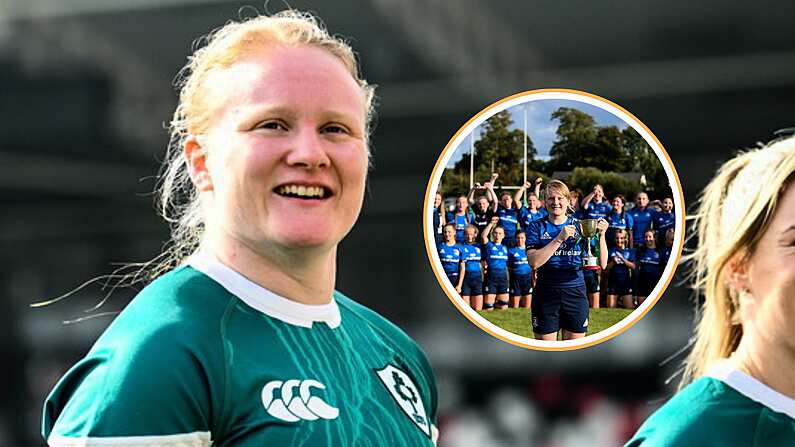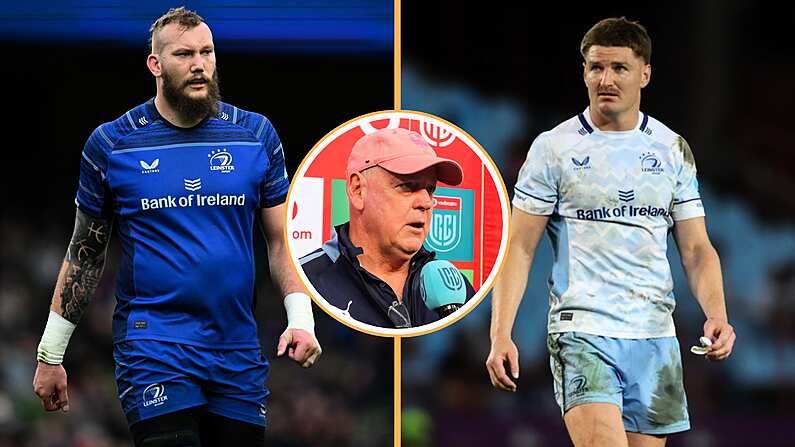The Ireland rugby team are still basking in the glory of their Six Nations triumph last weekend, although attention will quickly turn as to how they can improve ahead of the tour to South Africa this summer.
Andy Farrell's side started the championship brilliantly, impressing in the wins over France, Italy and Wales. However, it's fair to say that they couldn't quite hit those heights over the last two games.
The loss to England was a hugely disappointing one, with Ireland failing to perform at Twickenham. The showing against Scotland was also underwhelming despite the result, with the home side looking uncharacteristically disjointed in attack at the Aviva Stadium.
As it turns out, some feel they were rather fortunate that their winning try in the rugby game was even allowed to stand.
READ HERE: Springbok Legend Predicts Typical Rassie Approach To Summer Series Against Ireland
Rugby: Owens feels Ireland were lucky to have Scotland try given
Andrew Porter was the man that scored what turned out to be the winning try against Scotland, although some felt at the time they were question marks over the decision to allow the score to stand.
The grounding of the ball was not necessarily clear, while there was also potential blocking from his teammates as the prop made his way towards the line.
𝐅𝐈𝐍𝐀𝐋𝐋𝐘! 🟢
Ireland finally breach that brilliant Scottish defence through Andrew Porter!#IREvSCO | #GuinnessSixNations pic.twitter.com/ggSbILafcJ— Virgin Media Sport (@VMSportIE) March 16, 2024
Appearing on the World Rugby YouTube channel, Nigel Owens broke down why Ireland were somewhat fortunate that the try was given by the officials.
Is there blocking? This is a very difficult one again.
We do have players going in front of the ball-carrier. If you felt those two players prevented them ge tting at the ball-carrier and tackling them, then you have obstruction.
Porter does tend to go out slightly wide, then a tackle is made. If you felt that doesn't make a difference because the tackle was made here, then you'd have no obstruction.
But if you felt they had taken two defenders out and those two defenders could have prevented him scoring the try, then you would have obstruction and a penalty.
In this instance, the match officials felt there wasn't a clear and obvious obstruction, hence why they've awarded the try.
But it is a very, very tight one...
There was a question around whether the ball was actually grounded. The TMO felt there wasn't any footage to change the decision, so they awarded the try.
Judging by Owens' comments, this seemed like a marginal call by the officials. It was certainly one that could have went against Ireland, although considering the decisions that were not given to Tadhg Furlong earlier in the game, they deserved that slice of luck.
Few could argue that they didn't deserve to win the game and the Six Nations as a whole. They played the best rugby throughout the championship.

